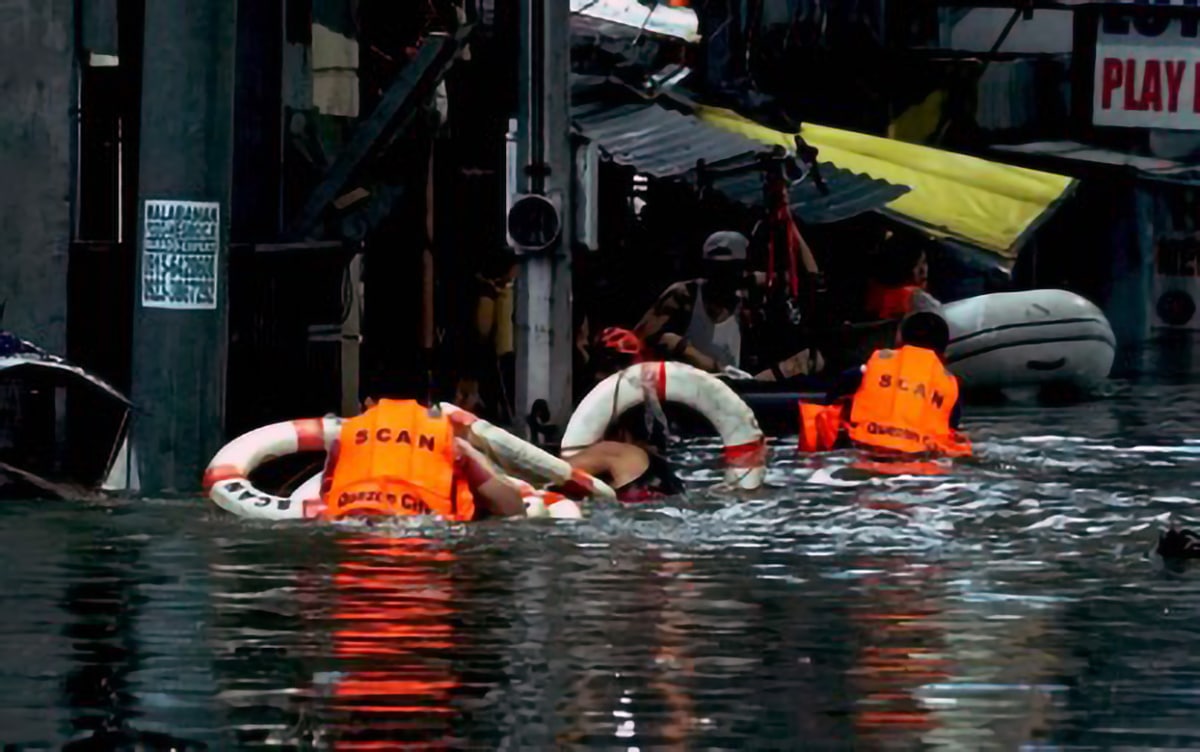
TYPHOON DAMAGE. Members of Iglesia ni Cristo’s SCAN International ferry residents and their pets to higher grounds amid floods along Araneta Avenue in Quezon City on Wednesday (July 24, 2024). The Bureau of the Treasury said on Thursday (July 25) the repair and rehabilitation of public schools damaged by Typhoon Carina will be covered under the National Indemnity Insurance Program. (PNA photo by Ben Briones)
MANILA, Philippines – The Bureau of the Treasury (BTr) said it will file a claim under the National Indemnity Insurance Program (NIIP) for the damage incurred by 45 public schools in eight regions due to Typhoon Carina.
In a statement on Thursday, the BTr said the NIIP, which began on Jan. 1, 2024, provides comprehensive cover to government assets against fire, lightning, typhoons, floods, earthquakes, and volcanic eruptions.
The program is part of the country’s Disaster Risk Finance strategy, which aims to protect the government’s fiscal health, provide immediate liquidity post-disaster, and reduce the impact of disasters on the most vulnerable.
For its pilot run, the BTr secured coverage for 132,862 school buildings nationwide, with an insured value of P843.11 billion.
The BTr, citing data from the Department of Education (DepEd), said damage to public schools has amounted to P308.5 million.
The BTr, DepEd, and the Government Service Insurance System (GSIS) are actively coordinating the filing of insurance claims under the NIIP.
“The implementation of the program underscores the commitment of the Bureau and the Department of Finance to ensure the nation’s financial resilience against disasters. We are actively coordinating with both DepEd and GSIS to ensure the timely assessment and payout of the program,” National Treasurer Sharon Almanza said.
Once a payout is confirmed, the DepEd will use the funds for the repair and reconstruction of the damaged schools.
“I commend the Bureau of the Treasury for its proactive steps in implementing the National Indemnity Insurance Program. Protecting our national assets is crucial for ensuring the economic security of our people. Damaged school buildings pose a significant threat to this security, as they are the very places where we nurture the potential of our nation’s greatest treasure—our students,” Finance Secretary Ralph Recto said.
“Poor school facilities negatively impact both teachers and students, leading to lower human capital development, reduced economic productivity, and persistent poverty. Thus, we must prioritize investing in resilient school buildings to secure a better future for our children and our country,” Recto said.